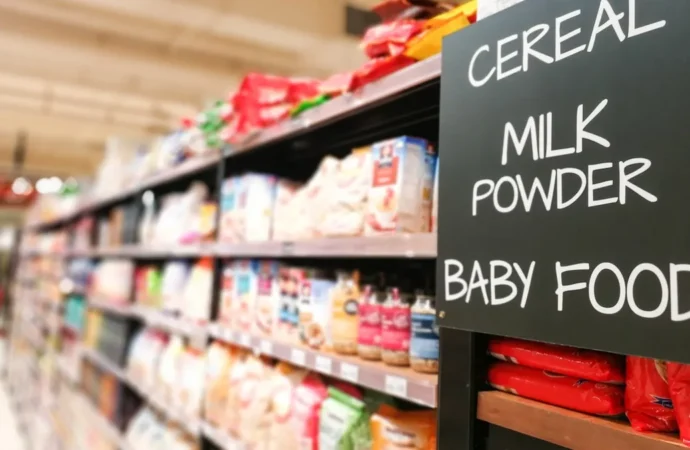A Worldwide Problem
Misleading labels on infant foods are not confined to one country — they are a global public health concern. From Europe to Asia, companies use clever marketing and selective disclosures to convince parents that their products are healthier than they really are. Research shows many packaged infant foods carry added sugars, excess salt, or low nutritional value, despite labels highlighting only the “good” ingredients. This practice undermines breastfeeding and misguides parents who trust the packaging.
The Tactics Used
Globally, companies employ similar strategies:
- Health Halo Words: Labels emphasise words like “wholesome,” “fortified,” or “nutritious” while hiding less healthy ingredients.
- Attractive Imagery: Pictures of fruits, grains, or happy babies suggest natural goodness, even if the actual content is minimal.
- Ambiguous Disclosures: Added sugars are often disguised under terms like maltodextrin or shown in grams without context, making it difficult for parents to assess health risks.
The Indian Context
India faces the same issue, amplified by a growing market for infant foods. A global study recently exposed how Nestlé sold infant cereals in India with added sugar, while marketing sugar-free versions in Europe. The packaging in India still portrayed these foods as “balanced nutrition,” misleading parents into thinking they were making healthy choices for their babies.
Legal Safeguards: IMS Act and FSSAI
India has specific laws to protect infants from such tactics:
- The IMS Act, 1992, bans the promotion of infant milk substitutes and restricts any claims or marketing that can mislead parents or discourage breastfeeding. Yet, enforcement challenges persist, especially in rural areas.
- The Food Safety and Standards Authority of India (FSSAI) regulates the composition and labelling of infant foods. It has begun reviewing sugar levels and nutrition claims in light of international findings. FSSAI also stresses the need for front-of-pack disclosures, so parents can clearly see when added sugar is present.
Why It Matters
Globally and in India, misleading labels carry real risks:
- Parents unknowingly expose infants to sugar and additives.
- Early sugar intake fuels long-term health problems like obesity and diabetes.
- Trust in public health advice weakens when corporate marketing overpowers regulations.
The Way Forward
To protect the youngest consumers, both globally and in India, action is needed:
- Enforce stricter labelling standards, aligned with the WHO’s recommendation of zero added sugar for children under two.
- Close loopholes in advertising laws, especially digital marketing targeting parents.
- Strengthen IMS Act monitoring to curb misleading promotions.
- Launch consumer education campaigns to help parents interpret labels critically.
Source: The Indian Express
 Food Manifest
Food Manifest 


















